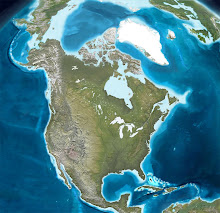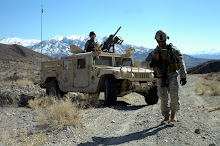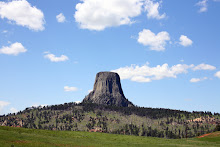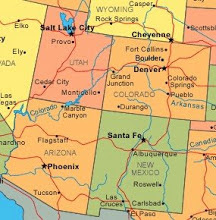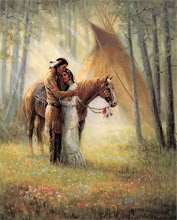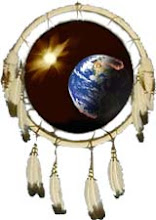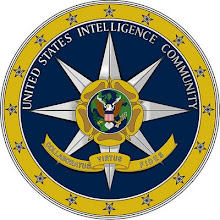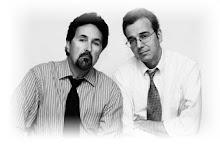By Steve Hammons
There’s a rumor out there that life, liberty and the pursuit of happiness are rights that are given to us by a higher Creator, not by governments, government officials and bureaucracies, kings or dictators.
If this is so, we might be unwise to surrender our personal, family and cultural history to judgments from government officials, politicians and bureaucracies. As a result, this path of independent thinking might make us hesitant to rely on national, state and tribal government officials to tell us who we are and who we are not.
These kinds of concerns have emerged in recent days regarding the three Cherokee groups recognized by the U.S. government.
Politicians from national and tribal government have attacked Americans who might or definitely do have Cherokee or other Native relatives and ancestors somewhere in the family tree. And Native Americans with a chip on their shoulder (understandably) have voiced righteous indignation about the "hijacking" of their identity and culture.
Journalists, pundits, political operatives, propagandists and well-meaning observers have weighed in too, often with little knowledge of Cherokee and U.S. history. Many or most of these people also likely have little or no direct experience themselves with Cherokee culture, either in the Oklahoma region or in the southern Appalachian Mountain Range, the ancient ancestral homeland.
Many people are not aware of the robust amount of intermixing between Cherokee and Anglo, Scottish and Scots-Irish newcomers in the Appalachian region in the 1700s.
So which is it? Does a Great Spirit of some kind give us these truths? Or, do national and tribal politicians, pundits and propagandists tell us who we are?
Do these truths flow from the grassroots up through the lives of generations of our ancestors into who we are? Or are these realities interpreted and defined from the top down, from government officials and others?
GROUP THERAPY
In human history and in our contemporary world there are many circumstances where governments, kings and dictators tell people a number of things about themselves.
They may tell people that they have no right to free speech or a free press, no right to self-government and democracy, no right to honest and ethical government officials, no right to education, no right to cultural identity, no right to human dignity, that their status in society is to be subservient or even that of a slave, or that they are sub-human.
Native Americans, of course, have been on the receiving end of this over the centuries. They are not the only ones.
Today, tribal sovereignty and self-government are important. The long, bloody and dark history of U.S. government and civilian actions against Native people proves that.
But government bureaucracies of all kinds can have hidden dangers that require constant vigilance, as do government officials and politicians. Surrendering our own judgment, insights and power to governments and government officials can be unhelpful and counterproductive.
Additionally, in organizations and social groups, people are often defined as either in the group or outside of the group."I’m in the good group and you’re not.” “I’m included, you’re not.” Or, “You’re in the bad group and I’m in the good group.” “You are not like me – you are the ‘other.’”
This seems to be the way of human nature and the human condition.
And this kind of human psychology and behavior probably plays a part in discussions about Cherokee and Native American lineage. Once we recognize this perceptual and behavioral pattern, it might help us see the larger situation more accurately and comprehensively.
STORYTELLING, AWARENESS, PERCEPTION
Over the last week, it has been interesting to see so many politicians and political operatives voice such deep concerns about Cherokee and Native American people. Who knew that certain national politicians, political pundits and media propagandists held such heartfelt concerns about the well-being of Cherokee people?
These politicians and operatives must be the good people I’ve heard about who are fighting for human decency in American and international society, and for justice, truth, freedom of speech and press, a decent way of life for all people, a better world and human progress of all kinds.
Or, could it be that these political operatives are using a number of well-meaning Cherokees, other Native Americans, journalists, observers and those suffering from "white guilt" for larger and darker purposes?
Beware of the “useful idiot” trap. This refers to the manipulation of unsuspecting people to serve clandestine, covert, deceptive and often dark objectives. Sometimes it’s not very covert, but rather obvious, and it does take somewhat of an idiot to not realize it.
In these times of “information warfare” and manipulation here at home and around the world, it’s probably helpful for all of us to develop better skills in awareness and perception. Some people call it “situational awareness” or "situation awareness" – what are all the moving parts going on around us, what’s going to happen next, how should we react or handle it?
This Cherokee issue is just one of many that we need to make good judgments about based on good situational awareness.
It might also be helpful for us to be aware of “weaponized storytelling” or “weaponized narrative.” This method of persuasion is subtle and even unconscious for the reader, viewer and information consumer.
Sometimes we have to be able to see through the BS.
The story of the Cherokee is much deeper and wider in scope than is generally known. And that scope certainly includes the story of the mixing and blending of Cherokee with the early Anglo, Scottish and Scots-Irish explorers, hunters, settlers and generations of their descendants in the Appalachian region and elsewhere from the 1700s to today.
To deny this reality denies a crucial part of the Cherokee story, and of the American story.
(If you liked this article, please see my other recent ones about the Cherokee on the Joint Recon Study Group and Transcendent TV & Media blogs.)
skip to main |
skip to sidebar

In the past 30 days, readers from approximately 40 countries or territories using about 20 languages visited the Joint Recon Study Group site.

To see more articles, scroll down the right-side column.

Steve Hammons

Articles from the Joint Recon Study Group site and Transcendent TV & Media site are included.
The Joint Reconnaissance Study Group is the San Diego-based, combined-service/agency, research-and-activities team in my novels "Mission Into Light" and sequel "Light's Hand." This site contains information of interest to the JRSG.
Home page: Joint Recon Study Group site
Readers from around the world visit this site.

In the past 30 days, readers from approximately 40 countries or territories using about 20 languages visited the Joint Recon Study Group site.
April 2021 threat alert: ‘Force protection’ for our troops now the responsibility of all Americans
First responders must deal with society’s problems, shortcomings, injustices every day
Could some UFOs be linked to Native American 'white stone canoe' legends, stories?
Wildland firefighter basic training available at community colleges, tech schools, training centers
‘Boomer remover’ coronavirus is bigger threat to WWII generation that saved the world
‘Black swan’ events that aren’t: Coronavirus, climate emergency, unidentified aerial phenonema
Reagan’s complete 1987 UN message on ‘alien threat’ overlooked: Grave danger here, now
Was Reagan briefed about UFOs and original ‘Day the Earth Stood Still’ movie?
My military draft lottery number was #165 during final Vietnam War years
“Keep On The Sunny Side,” by The Whites, from movie O Brother, Where Art Thou?”
Living along Ohio River for centuries, Native Shawnee called it ‘Kiskepila Sepe’ – ‘Eagle River’
Native American words around us: States, towns, rivers, lakes, terrain, plants, animals, military
Athens County, Ohio, was key spot when colonists, Redcoats fought Shawnee in 1774 battle
1787 Northwest Ordinance set course for Ohio, Indiana, Illinois, Michigan, Wisconsin, Minnesota
Smallpox-tainted blankets were 1763 bioweapon on northern Appalachian Mountains frontier
Diana Krall performs “Maybe You’ll Be There" live in Paris with Paris Symphony Orchestra 2001.
Books to read in 2021? Novels "Mission Into Light" and the sequel "Light's Hand"
Novel excerpt: Renew, prepare America with ‘Urgent Response Group’ for teens, young adults
Diana Krall performs “I Get Along” live in Paris with Paris Symphony Orchestra 2001.
Steve Tyrell sings “Give Me the Simple Life.”
Diana Krall performs “Love Letters” live in Paris with Paris Symphony Orchestra 2001.
Visit the article archives!

To see more articles, scroll down the right-side column.
Novel "Mission Into Light" overview on Amazon
Novel "Light's Hand" overview on Amazon
Adventures of the Joint Recon Study Group: Overview and synopses of activities and operations
Key chapter overviews: Points of interest in the novel "Mission Into Light"
Key chapter overviews: Points of interest in the novel "Light's Hand"
Multimedia rights available
English and foreign-language book rights, audio book and e-book rights for "Mission Into Light" and "Light's Hand" are available. Movie and TV rights are available.
I'm seeking agent representation for these works and rights.
Please contact Steve Hammons for more information at hammons55@gmail.com.
Feature film screenplay
I completed a feature film screenplay in 2006 based on “Mission Into Light” and “Light’s Hand” combining key elements of both novels.
The screenplay takes audiences into the adventures and discoveries of the Joint Recon Study Group and the relationships among team members, friends and associates as they explore leading-edge research and emerging transcendent developments.
I'm seeking agent representation for this screenplay.
.........................
I also wrote a TV series pilot script based on "Mission Into Light" and "Light's Hand" story. I'm seeking agent representation this script.
About the Author

Steve Hammons
About the Author
I was born and raised in southwestern Ohio near the Kentucky and Indiana borders, then went to college at Ohio University in the southeastern Appalachian region of the state near West Virginia.
I graduated with a dual major in communication (journalism focus) and health education (psychology focus) with a minor in pre-law.
Ohio U. is home to the respected Scripps College of Communication and E.W. Scripps School of Journalism.
I also completed two graduate-level courses in guidance counseling theory and method at Ohio U.'s College of Education, School of Applied Behavioral Sciences and Educational Leadership.
At the end of my undergraduate education at Ohio University, I moved to the beautiful American Southwest where I applied my education, continual training and and ongoing experience to related professional fields such as health care, journalism and special research areas.
My novels "Mission Into Light" and the sequel "Light’s Hand" are available in e-book and 6"x9" paperback from most online booksellers worldwide.
Readers review metaphysical-military-intelligence adventure novel ‘Mission Into Light’
My articles on DoD CultureReady blog, Defense Language and National Security Education Office
Transcendent TV & Media site
Past articles: Scroll down the right-side column for more articles.

Articles from the Joint Recon Study Group site and Transcendent TV & Media site are included.




























